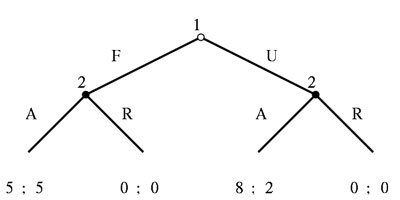
Recently we’ve seen the electorate change as past notions of left versus right have been bent into new alignments. Family favorites like guns, God and abortion still divide us predictably, but two new factors have rearranged former loyalties. Now the sides are educated or not, and angry or not.
While Democrats and many traditional conservatives stand shocked and agog at Trump’s latest atrocity, his red-hatted fan base love him all the more. “How could anybody support such an indecent, damaging person?” liberals cry, not seeing that to his supporters Trump is not their representative, but rather he is their weapon, a view endorsed by controversial political scientist Charles Murray.
It doesn’t matter if one’s weapon is dirty, or damaged, or embarrassing because the weapon itself is not one’s representative, it only matters if it strikes effective blows. To his backers, Trump’s silver spoon, golden toilets and billions describe a man who is certainly not “one of them” in a demographic or economic sense, placing him at a further, sometimes nose-holding, remove from his base. Similarly the Christian Evangelicals stress a distance between themselves and Trump. What he promises them (somehow believable from a mega-grifter) makes him their tool of convenience. Their calculation is shamelessly transactional and ethically Judas-worthy, but so far quite effective. This explains why people will vote for a candidate who is nothing like them.
But why need a weapon and who are its intended victims? The sneering liberal “elites.” It’s payback. Today every single group, right down to the granular scale of minorities of race, orientation or circumstance, are protected by law and societal opprobrium – except being uneducated or just plain stupid: it’s been open season on them for some time. Ditto rural folk, the “faith community” and blue-collar workers. Never before has the status of being college-educated (or not) been one of the most salient divisions in our political affiliations. This new bright line of anger division rearranges old-school party loyalties.
It doesn’t explain though, why they’ll vote against their own self-interest. The Left is mystified as to how people can endorse a candidate whose policies will harm them particularly; savaging government assistance and Obamacare, mass incarceration, tax cuts for the rich and corporations, etc.
This can be understood, though, with a deeper psychological reading of a metric that has only in the last few years been included in polls. It also forsakes right vs left for a new division: a psychological one. One most important predictor of Trump support was the appeal of the authoritarianism (McWilliams et al). The anger and appeal of authoritarianism is sufficiently supercharged to split the electorate more firmly than the traditional conservative vs liberal mindsets, as we’ve seen by the large and decisive number of crossover voters.
On a deeper level, an experiment from economics helps us analyze that rage. In what is known as the “Ultimatum Game”, one person is given some money and asked to offer a share s/he decides to another person. If the second person accepts the offer, both keep the money, but if he or she rejects it, both get nothing. You’d think the second person would rather get something than nothing and accept any offer, but experiments on thousands of subjects around the world show that offers below around 30 percent are typically rejected, thus harming both individuals.

In groups of all sizes and across the globe people will take a detriment to themselves and override self-interest to punish wrongdoers. Humans are what economists call strong reciprocators and altruistic punishers because from an evolutionary level we’re wired for reciprocity. Altruistic in this context doesn’t mean anything pleasant, but rather accepting self-sacrifice to harm those deemed needing it. For want of a simpler term: spite.
One of the defining features of the third of Americans who are Trump supporters is anger and with anger comes this desire to punish wrongdoers (see above), regardless of the consequence of a wildly unqualified and probably dangerous president.
Their rage is exacerbated by workplace upheavals (which particularly algorithm or robot will kill your career?), and stagnant middle class wages feed into an increased popularity of authoritarianism. Additionally, cultural factors – always immigration, the “uppity” minorities, “the gays all in our faces” and secularism contribute to this realignment of loyalties. The resultant push back against the above from an authoritarian leader brings out authoritarian tendencies in (apparently 30-40% of) people normally immune to the lure of a charismatic conman promising simple solutions to complex problem and making bigotry great again.
This desire to punish, the separating of Americans between angry and not, on cultural grounds, is enhanced by the feelings in “flyover country” and the “non-college educated” with an economic gripe wherein not only are their wages stagnant, their misfortune is seen as exacerbated by the wealth and success of the (seemingly moneyed) coastal elites. Be this true or not, it’s a very popular notion and closely resembles reasons for persecution of the Chinese in S.E. Asia or Jews in Eastern Europe, except that in the former ethnic gripes come into play, whereas here the division is cultural and economic.
These changes, the slide into authoritarian dynamics and the “spite factor” in voting, both coalesce into a political tribalism which has been brewing for the past 30 years. The “moral majority” pushed for this in earnest in the 1980s with the politicization of Christianity. It was supercharged by Gingrich and friends’ desire to delegitimize the opposition not just politically, but as humans. Fox News is the blood through which this disease spreads to the entire body politic.
The above won’t take us all the way to an understanding of how we’re here in 2018, split in new ways. Also important are the political “bubbles” of social media upon a citizenry educationally ill-prepared to parse lies from truth, the algorithmic gaming of these new platforms by Cambridge Analytica and the Russians. Circumstances are changing faster: societal change is exponentially moving nearly as fast as Moore’s law. Who could have predicted gay marriage as early as 2000, or the damage social media would do in splitting the citizenry? Change creates fear, which triggers latent authoritarianism; the consequence of that is the alteration of traditional party allegiances.
Whether we were once graduate students at fancy schools or not, whether the lure of authoritarianism is strong or is awakened in us, whether we’re angry or not: these are the new divisions. As fractured in so many metrics as we are, the result in this new America is we’re all now student-victims at Trump University.
Leave a Reply